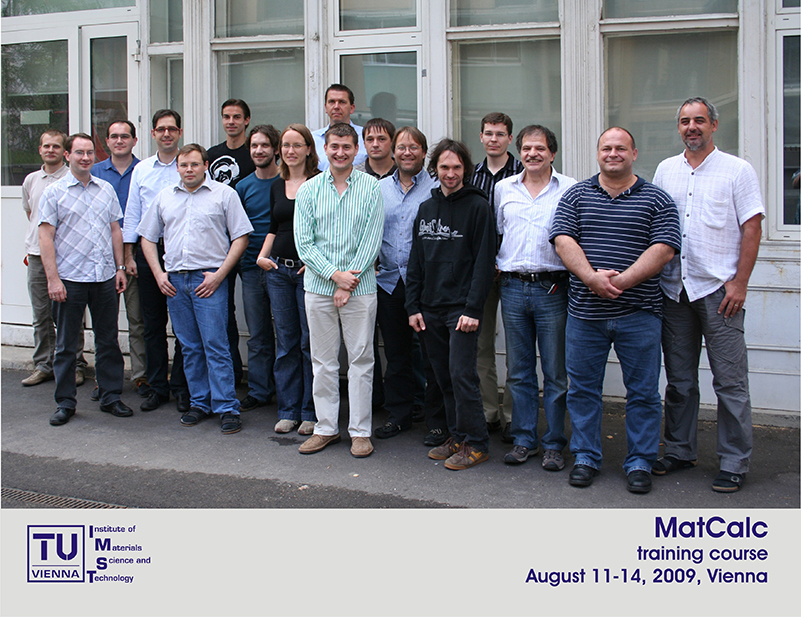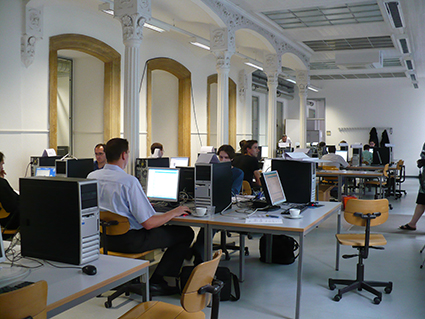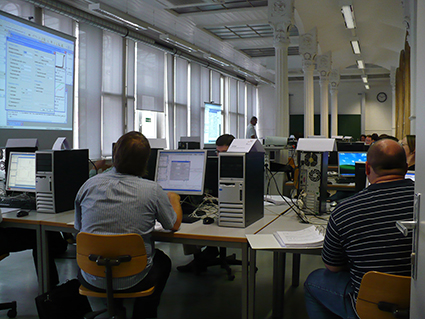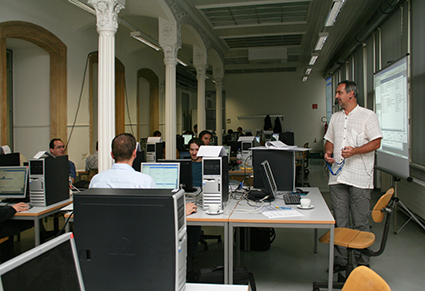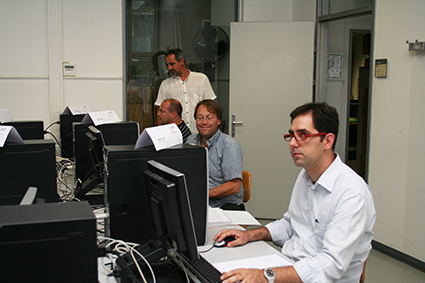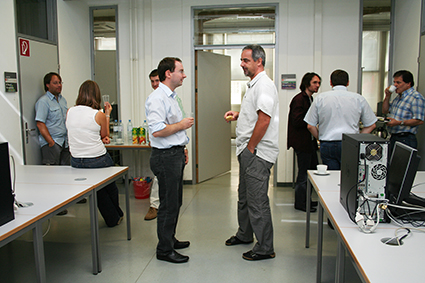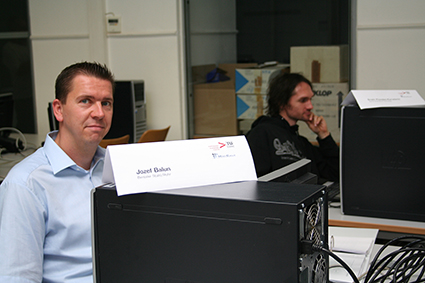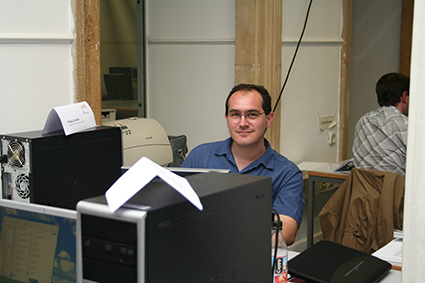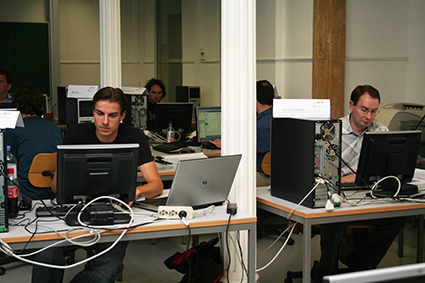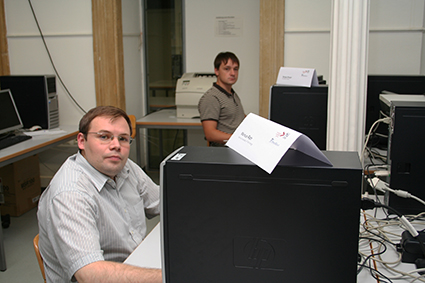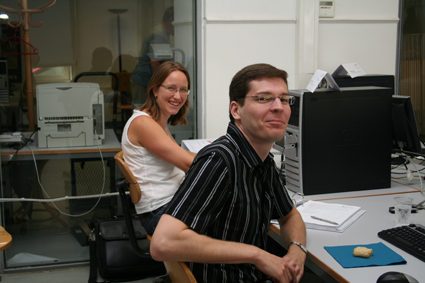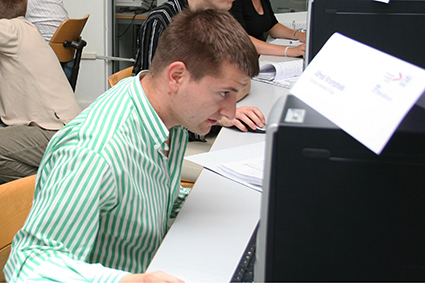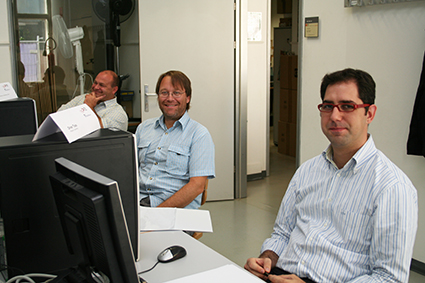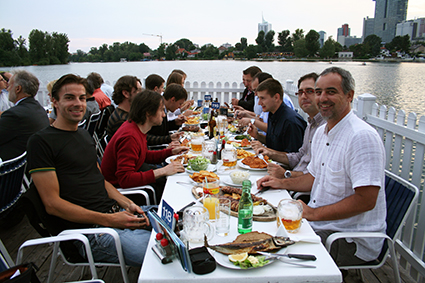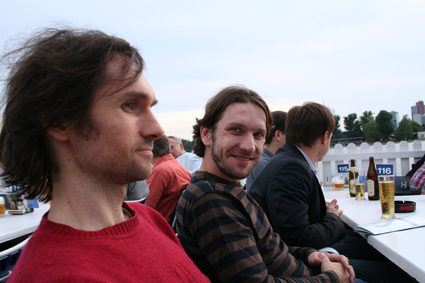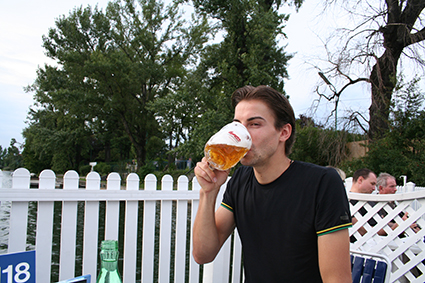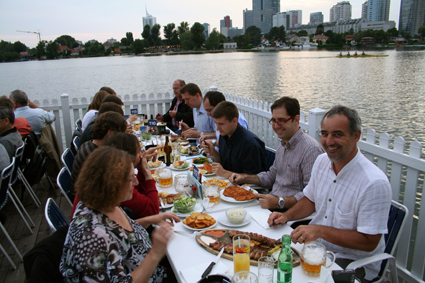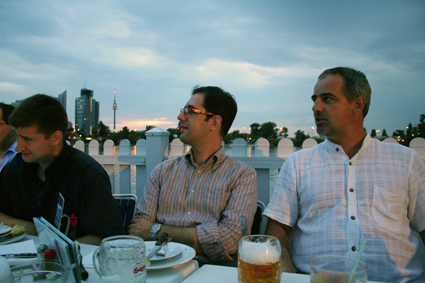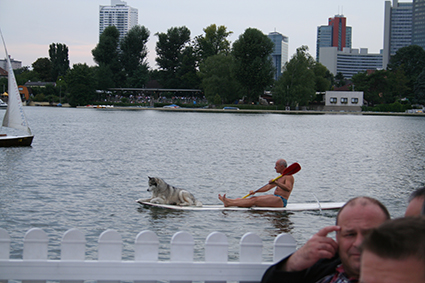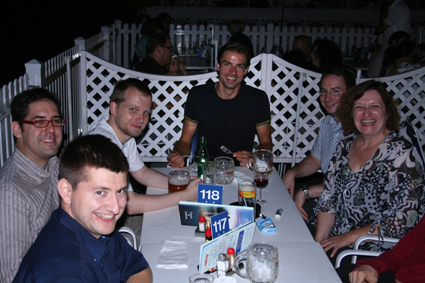Training 2009
This year's MatCalc course 'Thermodynamic and kinetic simulations with MatCalc' was held from Aug. 11-14 2008 at the Vienna University of Technology with 14 participants from both academia and industry.
Time schedule of the this year's MatCalc training course:
Tuesday, Aug 11, 2009; 9:30 to 17:30
- Welcome, History, field of application …
- Introduction to MatCalc: GUI and first steps/calculations
Break
- Theory: thermodynamic equilibrium, driving forces, databases, ...
- Practical training: How to create a workspace, simple equilibrium calculations
Break
- Practical training: Stepped calculations, graphical representation of results, data export
Break
- Theory: thermodynamic equilibrium, driving forces, databases, ... (continued)
- Practical training: Calculation of Phase boundaries (‘How to find …’), Calculation and plotting of Fe-C phase diagram
Wednesday, Aug 12, 2009; 9:00 to 17:00
- Scheil-Gulliver simulation, microsegregation and relevance for kinetic simulations (theory and practice).
Break
- T0- temperature (theory and practice)
Break
- Performing a first precipitation simulation in the GUI (cementite in ferrite)
Break
- Simulation of a precipitate size distribution
- Introduction to console commands
Thursday, Aug 13, 2009; 9:00 to 17:00
- Practical training: Changing nucleation conditions: Ortho- / paraequilibrium nucleus composition, nucleation sites, etc.
- Practical training: Evaluation of driving forces for precipitates
- Practical training: Influence of matrix parameters
Break
- Theory: Phase transformation and precipitation in the MatCalc framework: SFFK model
- Theory: Introduction to the SFFK Model: evolution equations
Break
- Practical training: Writing a script for precipitation simulation
Break
- Practical training: Heat treament simulation: Precipitation of NbC in steel
Friday, Aug 14, 2008; 9:00 to 15:00
- Practical training: Precipitation in Al-Mg-Si alloys. Strategies for optimizing the modelling parameters
Break
- Theory: Nucleation theory, treatment of interfacial energies
Break
- Discussion / analysis of practical examples of users
